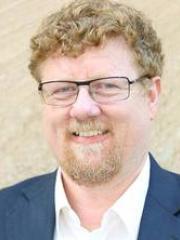Professor Rob Capon

Highlights
Professor Rob Capon is a natural products chemist. He is a master of interrogating the molecular diversity of the natural world and applying it to society’s most pressing social and economic problems. He goes out into the natural world, detects biologically active molecules from living things, then isolates, identifies and evaluates them. Most importantly, he is committed to finding a use for them. His mantra for commercialization is ‘forced failure', in other words, “if you can break it, you won’t make it”. With the enormous untapped potential of natural products, he doesn’t like to waste time. He works quickly to “break or make” hypotheses, to focus resources on those molecules that are worthy of investment.
Professor Capon leads a group of researchers that are responsible for assembling a world-class molecule library, which along with the Australian collection of microbes housed at IMB, is used to discover new drugs. For Professor Capon, the most rewarding aspect of his work is the ability to dip into the molecular resource in the Australian environment, extract the chemistry and use it to improve our understanding of the natural world, and solve important problems.
He applies his research methodology to human health, animal health, crop protection, and environmental protection. He collaborates broadly in each of these areas.
Video
Researcher biography
My research group specializes in the detection, isolation, identification and evaluation of biologically active small molecules from Nature (natural products). We acquire valuable knowledge on how and why natural products are made, and apply this knowledge to better understand living systems, and solve important scientific and societal challenges.
To achieve these goals we have established specialist capabilities that extend across;
Microbiology – the isolation, characterization and cultivation of bacterial and fungal strains.
Chemistry – the extraction and fractionation of natural extracts, the purification, chemical and spectroscopic characterization, and structure elucidation of natural products, and the use of synthetic and medicinal chemistry to explore bioactive scaffolds.
Biology – to evaluate extracts and natural products against an array of bioassays, leading to new human pharmaceuticals that target such indications as infectious and neurodegenerative diseases, cancer, pain and epilepsy, as well as new animal health products and new crop protection agents.
